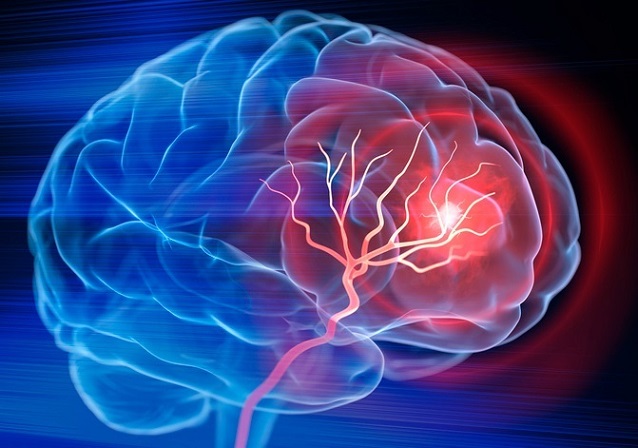Nikhil Prasad Fact checked by:Thailand Medical News Team Jun 23, 2025 8 months, 23 hours, 26 minutes ago
Thailand Medical News: A team of researchers from the Department of Medical Genetics at the College of Basic Medical Science, Army Medical University in Chongqing, China, along with colleagues from the Department of Neurology at Xinqiao Hospital, have uncovered a critical link between the naturally occurring substance L-lactate and brain damage caused by strokes. Their findings provide fresh hope for new strategies to reduce damage from cerebral ischemia, a condition caused by restricted blood flow to the brain.
 Lactate May Hold the Key to Preventing Brain Cell Death in Stroke Victims
Lactate May Hold the Key to Preventing Brain Cell Death in Stroke Victims
According to this
Thailand Medical News report, glutamate—a chemical responsible for sending signals between brain cells—can become toxic when produced in excess during a stroke. This overproduction overstimulates certain receptors in the brain, leading to a dangerous influx of calcium into cells. This calcium overload can trigger brain cell death, inflammation, and permanent neurological damage. But the researchers propose that L-lactate, a simple molecule often associated with physical exercise, plays a protective role in managing this cascade of harmful events.
How Glutamate Turns Deadly in a Stroke
Under normal conditions, glutamate is essential for brain function. It helps neurons communicate, supports memory formation, and contributes to learning. However, during a stroke, blood supply is cut off, and neurons release large amounts of glutamate uncontrollably. This floods the brain with signals that activate NMDA receptors—special gateways in neurons—causing an overload of calcium inside the cells.
This calcium surge is highly toxic, damaging the cell's internal structures and eventually leading to cell death. Moreover, the study found that L-lactate, which is usually produced by supporting cells called astrocytes, plays a crucial role in stopping this damage. It helps move calcium out of the cells, supports the energy needs of neurons, and reduces inflammation by shifting immune cells in the brain from a harmful (M1) state to a healing (M2) state.
L-Lactate as the Brain’s Secret Guardian
The study dives into how L-lactate influences the glutamine-glutamate cycle between neurons and astrocytes. It helps neurons recycle glutamate safely, preventing it from accumulating to toxic levels. The molecule also activates a signaling pathway in astrocytes that encourages glucose breakdown and energy production. This pathway, called the L-lactate-sensitive receptor (LLR)-cAMP/PKA pathway, not only boosts glutamate absorption by astrocytes but also increases lactate production, creating a beneficial loop.
Additionally, L-lactate may help prevent calcium buildup by supporting the function of the mitochondrial calcium uniporter complex (MCUC), which moves excess calcium into mitochondria for safe storage. In stroke patients, when L-lactate levels are too low, this protective system breaks down, leading to uncontrolled glutamate toxicity and worsening brain damage.
The Dangerous Cycle of L-Lactate Defi
ciency
The researchers highlight how a lack of L-lactate worsens the stroke outcome. During cerebral ischemia, less glucose enters astrocytes, reducing L-lactate production. This leads to poor calcium regulation, increased glutamate toxicity, and a surge of inflammation from immune cells known as microglia. The study suggests that replenishing or stimulating L-lactate could potentially interrupt this deadly cycle.
Could L-Lactate Be a Future Drug for Stroke?
Although not yet used in clinical practice, L-lactate has shown significant protective effects in various brain injury models. It has been found to enhance DNA repair, reduce inflammation, and support cellular energy production. In animal studies, it has also been linked to better recovery outcomes after strokes and brain trauma.
Conclusion
This groundbreaking study presents compelling evidence that L-lactate is far more than just a byproduct of metabolism. It acts as a signaling molecule, energy source, and neuroprotective agent that plays multiple roles in managing glutamate toxicity and calcium overload in the brain during a stroke. By highlighting its function in preventing brain cell death, this research opens up a promising new avenue for stroke prevention and treatment. Future therapies targeting L-lactate production or signaling could significantly improve outcomes for patients suffering from cerebral ischemia.
The study findings were published in the peer reviewed journal: Pharmaceuticals
https://www.mdpi.com/1424-8247/18/7/935
For the latest on stroke treatments, keep on logging to
Thailand Medical News.
Read Also:
https://www.thailandmedical.news/news/beyond-recovery-study-reveals-how-covid-19-doubles-heart-attack-and-stroke-risks-for-years
https://www.thailandmedical.news/news/covid-19-stroke-is-unique-as-the-vwf-adamts13-axis-plays-a-key-role-in-thromboinflammatory-response
https://www.thailandmedical.news/news/folate-levels-and-stroke-risk
https://www.thailandmedical.news/news/how-salidroside-helps-protect-the-brain-after-stroke
